Food Allergen Training – [Complete Video Kit]
$239

If you are in the food processing, preparation, or food services businesses, then you know how important food allergies are to your customers. Having your employees understand allergens when it comes to the food business is critical to your customer safety and satisfaction. That’s where this Food Allergan Training comes in. This course will teach your employees the ins and outs of food allergens.
This Food Allergen Training Course Teaches the Following:
- What is a food allergen? (these are normally harmless substances, usually proteins, which can cause an allergic reaction in people who are allergic or sensitive to the substance)
- What are some common food allergens that can cause allergic reactions in customers? (Nuts such as pecans, peanuts, and walnuts, wheat and wheat products, fish and shellfish including crab, shrimp or lobster, sesame, soybeans, milk, and eggs are common examples)
- What is the “Food Allergen Labeling and Consumer Protection Act,” and when was it put in place?
- What is the “Food Allergy Safety, Treatment, Education and Research Act” known as “FASTER,” and when was it implemented?
Additional Topics Covered in the Food Allergen Training Program:
- What are some examples of reactions that can occur when a customer comes in contact with a food that they are allergic to? (Hives, swelling, anaphylaxis, rashes, itchiness, coughing, dizziness, vomiting, and difficulty breathing are common reactions)
- What is the difference between “food allergies” and “food intolerance?” (Food allergies cause allergic reactions like those listed above, while food “intolerances” do not have an immune system response, they just have an inability to break down certain foods such as dairy products and more)
- What are examples of foods that customers might have some intolerance to? (Milk, cheese, yogurt, eggs, wine, tomatoes, certain fruits, and other food additives or dyes)
- What is “cross-contamination” between allergen and non-allergen foods, and why is it important to prevent this from occurring?
- What are some examples of how allergen cross-contamination can occur? (Truck trailers that are used for both peanut and produce transportation, eggs that are placed on tables or food prep areas where produce is also prepared, and many more)
Preparation Tactics Important to Eliminate Food Allergen Issues
- What are some examples of surfaces that can come in contact with allergens while preparing, producing, processing, and packaging foods? (Equipment, knives, employee hands, packing and processing tables, etc.)
- How can employees prevent allergen cross-contamination while working with food? (Employees need to be trained to understand the allergens used in your specific food products, they need to understand the sanitization protocols of your business, need to wash their hands often, teaching them to separate potential food allergens from other food products, and more)
- What is an “undeclared allergen,” and how might it affect the processing of the food in your business?
- What are the procedures that the FDA requires to prevent cross-contamination?
- What are the FDA requirements for employees to check the ingredient labels for foods?
Other Topics Covered in this Employee Food Allergen Training:
- What is an SSOP or “Sanitation Standard Operating Procedures” manual, and why does the FDA recommend that food preparation facilities have one?
- What should an SSOP include? (The areas within the business that need to be cleaned and a schedule for doing so, using test swabs to test rinse water for allergens, the specific chemicals and temperatures for each cleaning task, and more)
- What is a “Cleaning Check List,” and how can it help employees prevent allergen cross-contamination?
- What should you do if your employees find allergen cross-contamination?
- What are the important and required information for food labels, including the difference between a “may contain” and a “contains” label?
- and much more….
Teaching your employees about the importance of food allergies within the food they prepare is critical for both your business and the customers who consume your food. Training your employees is the best way to maintain food safety and ensure the well-being of your customers. This Food Allergen Training Program will help you achieve those goals.
Food Allergen Training Video Full-Length Preview:
![Food Allergen Training - [Complete Video Kit]](https://www.safetyvideos.com/wp-content/uploads/2024/04/Dealing-with-Allergens-in-the-Food-Industry-150x150.png)
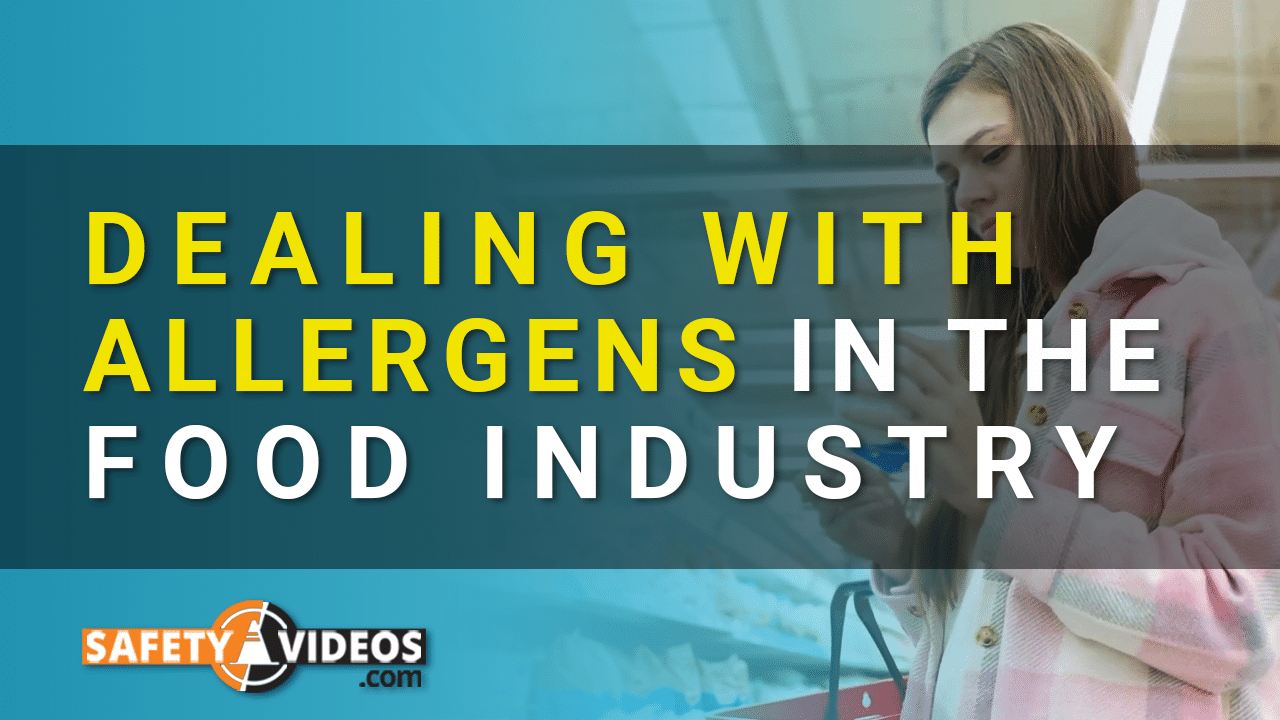


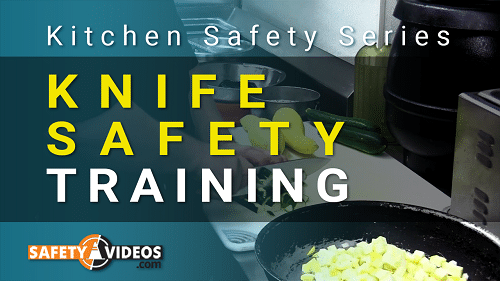
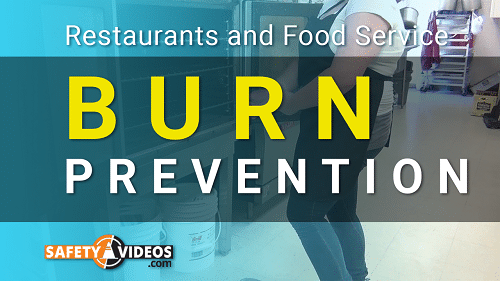
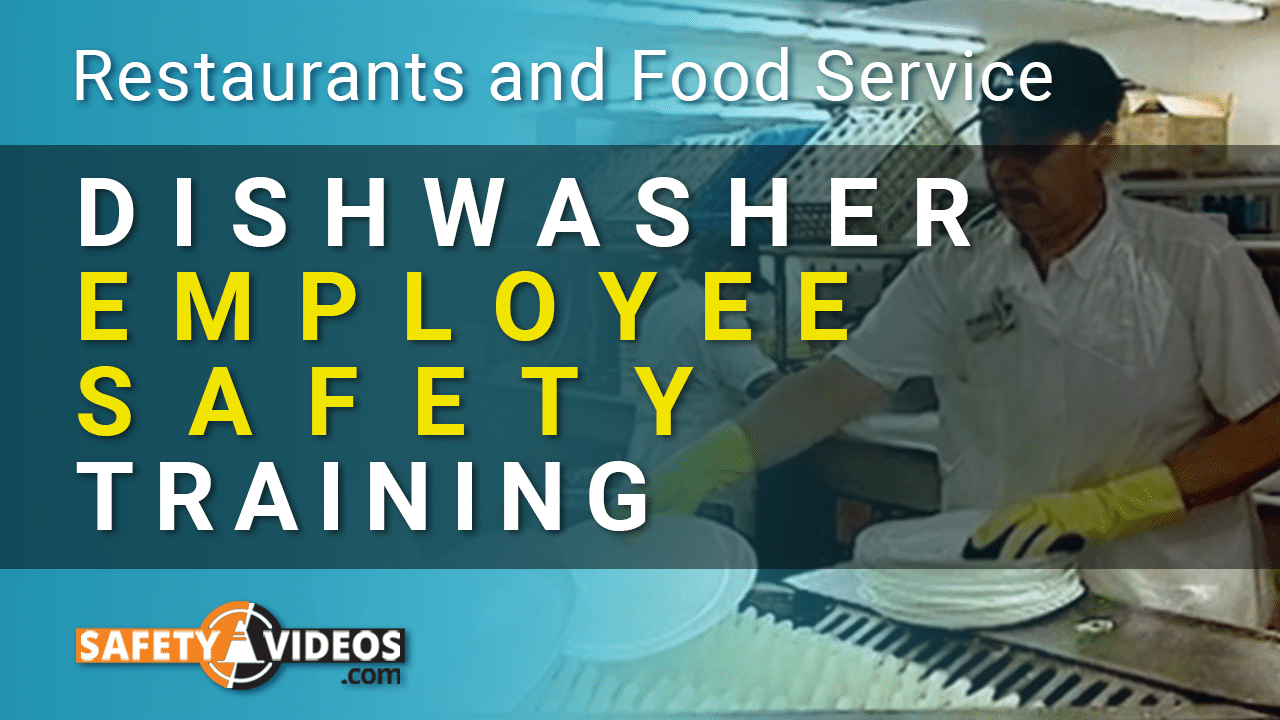
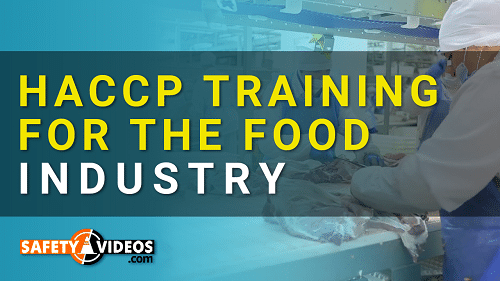
Reviews
There are no reviews yet